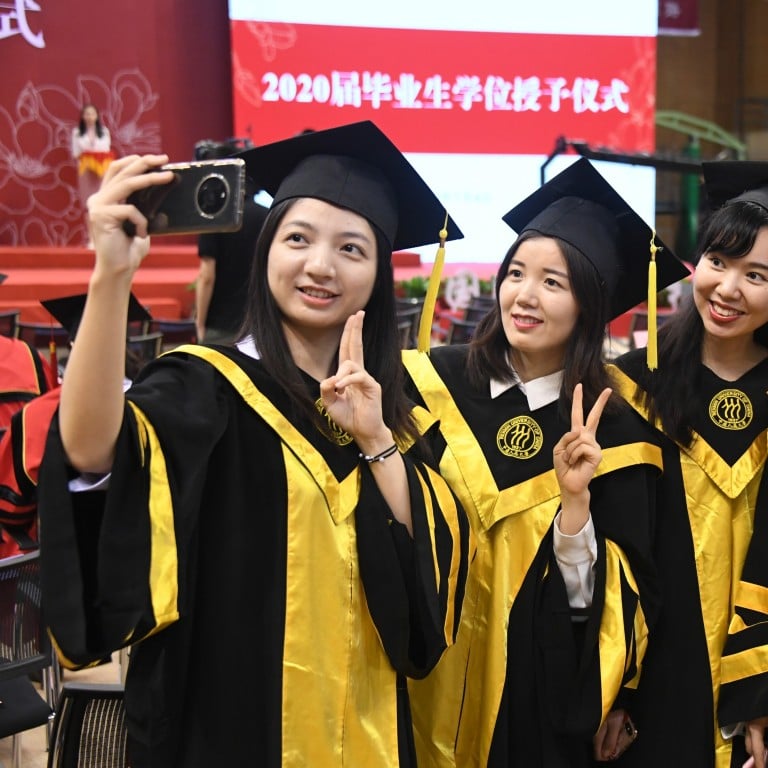
China’s top universities told to stop slacking off on Communist Party ideology
- Party inspectors find ‘common and deep-seated’ political problems on campus in two months of in-house inspections
- Orders come as leaders seek to maintain control in the lead-up to November’s gathering of the party elite, analyst says
The orders were delivered in “feedback sessions” on Thursday following a wave of inspections of some of the country’s top schools by personnel sent by the party’s Central Committee.
The meetings included senior officials from the Ministry of Education and top managers from 31 universities directly under the committee’s supervision, the Central Commission for Discipline Inspection, the party’s top anti-graft agency, said on Sunday.
The inspectors found a number of “common and deep-seated problems”, particularly in politics and ideology, the CCDI said.
“Some schools have slackened in their ideological work in the new era, [causing] hidden risks of varying degree,” it said.
Don’t expect an easy life and be ready to struggle, Chinese President Xi Jinping warns officials
“Strict enforcement of the party’s control is lagging ... and problems such as corruption in scientific research and infrastructure [investment] persist.”
According to the state media reports, 15 teams of inspectors were assigned from May to check on party units at the ministry and the universities.
“The inspection teams will be stationed at the units assigned to them for around two months, and hotlines and email addresses will be set up to solicit complaints and reports on discipline breaches by party officials,” state news agency Xinhua reported at the time.
The CCDI said the inspectors received tip-offs through these channels and handed over the information to corruption investigators for further investigation.
The agency has been sending inspectors to China’s top universities on such missions since 2017.
Among the institutions investigated are Peking University and Tsinghua University in Beijing, and Fudan, Jiao Tong and Tongji universities in Shanghai.
The 31 universities inspected are under direct management of the Central Committee, which along with the State Council, appoints their party secretaries and presidents. The appointees have the rank of a deputy minister.
From Mao Zedong to Xi Jinping: how China’s Communist Party leaders have shaped its ideology
“There have been major results from the ideological clean-up in the mass media, television and movies in recent months. But universities remain a major concern as they have often played key roles in social and political movements in the past.”
Since President Xi Jinping came to power in late 2012, university professors and teaching staff have been told to steer clear of sensitive topics in their teaching, especially those related to universal values, press freedom and civil rights.
In 2016, Xi vowed to turn the country’s universities into “strongholds of the party’s leadership” that “firmly uphold the correct political direction” and ensure the party’s doctrine dominated the minds of their academics and students.
Chinese universities tighten ideological control of teaching staff
A Peking University philosophy professor said that amid “major changes in the atmosphere”, he tried to “teach within the new boundaries”.
“Those who teach subjects related to Western philosophy and arts have to teach by the book, according to the approved curriculum, and not comment on current affairs now,” the professor said on condition of anonymity.
But academics in other fields – particularly technology – faced less pressure and had bigger research budgets amid Beijing’s push for innovation.
“People who teach Marxism and ancient Chinese philosophy are lucky. Just like the professors who undertake scientific and technological research, they have all benefited from the change of direction.”

